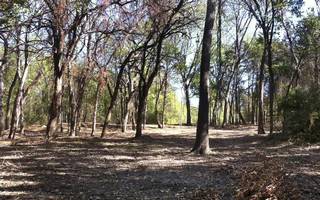ARLINGTON — The Texas Water Development Board’s hearing Wednesday was in the heart of urban North Texas, but most of the speakers came from 200 miles to the northeast.
They made the trip to protest what they say is an attempt to muzzle their opposition to a proposed reservoir in their rural region, with most of the water piped to sprawling Dallas-Fort Worth.
“We haven’t stopped fighting in 14 years, and we do not plan to stop anytime soon,” said Brittanie Lowery, who came from Atlanta, Texas, to denounce plans for the Marvin Nichols Reservoir.
Where North Texas sees a critical resource for growth, northeast Texas sees generations of heritage and a whole local economy — farms, homes, habitat and much of the Sulphur River — vanishing beneath a new lake.
Ranchers, loggers and environmentalists have united against Martin Nichols for more than a decade. But now a move by the water development board could erase any mention of the conflict from the official record.
The board is responsible for resolving disputes between regional water plans. In this case, the agency’s staff proposed a resolution that basically says North Texas wins.
Under the recommendation, the board this summer would order the North Texas water planning committee, designated as Region C, to keep Marvin Nichols on its water-supply wish list. That’s something Region C wants anyway.
But the board also would order water planners in northeast Texas, Region D, to change their plan, which now spells out the region’s deep opposition to Marvin Nichols. The reservoir, if built, would be entirely within Region D.
The proposed revision of the Region D plan would say there is no conflict because it has all been resolved — by virtue of the board’s decree to that effect.
That seemed like a good outcome to North Texas water agencies.
“The staff recommendation demonstrates strong support for state and regional water planning,” said Wayne Owen, planning director for the Tarrant Regional Water District, which serves nearly 2 million people.
But opponents see a blatant power grab by Dallas-Fort Worth, a twisting of state law and a betrayal of supposed regional control over water planning.
“It is state law that this state and regional water planning must protect agriculture and natural resources,” said Bill Ward, owner of Ward Timber in Linden. He then said it again, verbatim.
He had said it Tuesday, too, at a water board hearing in Mount Pleasant.
“I know the water development board has heard that over and over,” Ward said Wednesday in Arlington. “But it doesn’t seem to register.”
James Presley, a veteran environmentalist from Texarkana, said the possible mandatory deletion of any reference to Texas’ bitterest water fight struck him as particularly heavy-handed.
“I call this the Chinese solution to a Texas problem,” he said.
Oran Caudle, another longtime opponent from Texarkana, suggested that the water board instruct North Texas: “The name is Region C, not Regency.”
The hearing’s formal topic was the water planning process, but most speakers attacked the reservoir itself, accusing urban North Texas of wasting water while taking others’ resources.
William Crowder, a geologist, loudly demanded that North Texas utility managers reconsider the reservoir because of a fault running under its proposed site.
In the audience he spotted Jody Puckett, director of Dallas Water Utilities, who had noted earlier that she had to plan for 2.4 million people and the future.
Under Crowder’s attack, Puckett rose halfway from her seat and lifted both hands in what might have been a peace offering.
“I get it,” she said. “I get it.”
On Twitter: @RandyLeeLoftis














